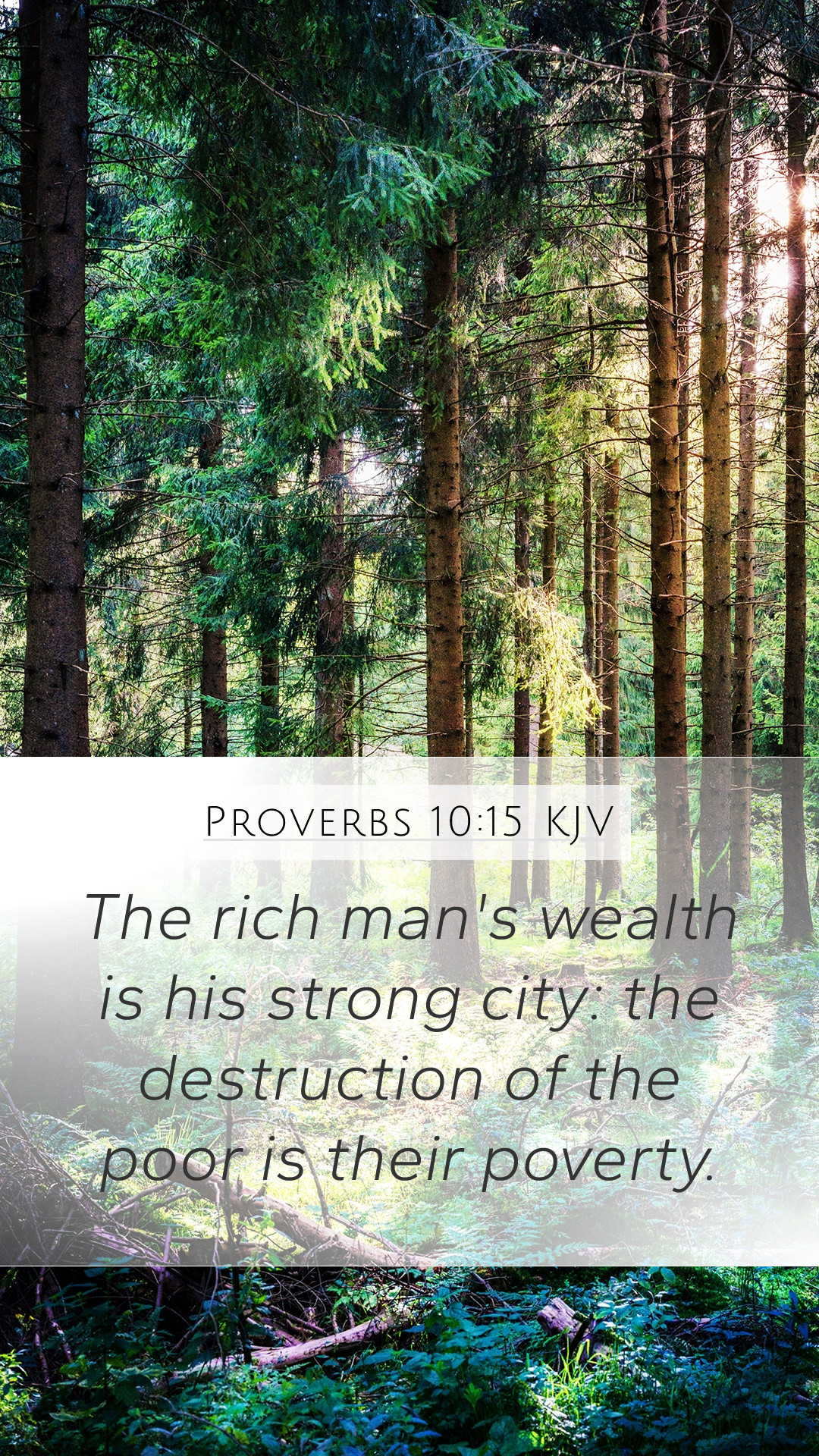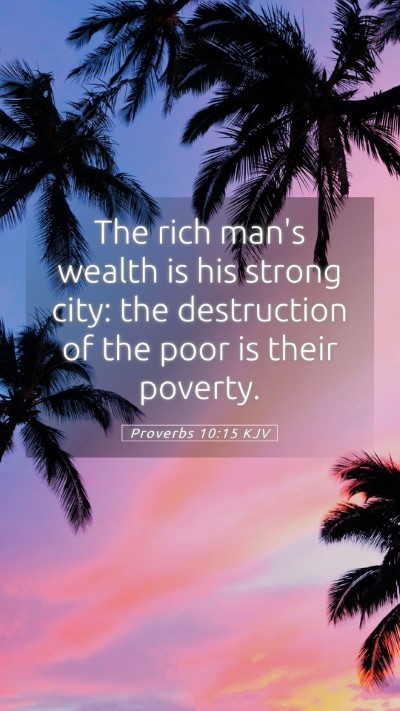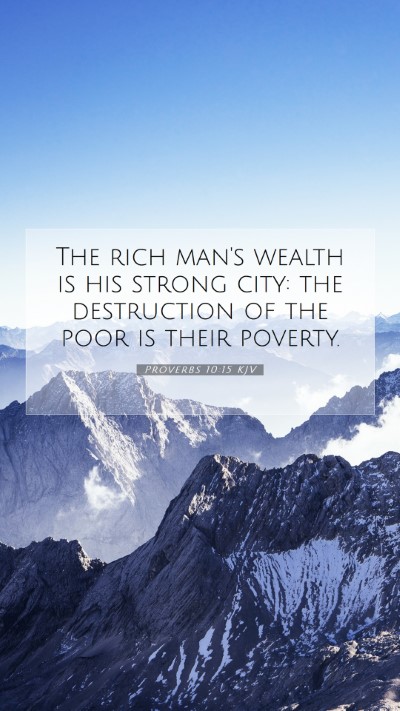Understanding Proverbs 10:15 - Bible Verse Commentary
The verse Proverbs 10:15 states:
"The rich man's wealth is his strong city: the destruction of the poor is their poverty."
This passage highlights two contrasting states: the security that wealth provides and the vulnerability introduced by poverty. Below, we explore the meanings and interpretations of this verse based on insights from renowned public domain commentators.
Overview of Commentary Insights
Many biblical scholars and commentators offer valuable insights into this verse, especially Matthew Henry, Albert Barnes, and Adam Clarke. Their analyses help us gain a deeper understanding of the principles conveyed in Proverbs 10:15.
Matthew Henry's Commentary
Wealth as a Fortress: Matthew Henry interprets the "rich man's wealth" as forming a protective barrier, akin to a fortified city. This figurative city suggests that wealth can provide security and safety, allowing the rich to navigate life with a certain level of confidence.
Poverty's Perils: Henry contrasts this with the "destruction of the poor," emphasizing that poverty brings a level of fragility and vulnerability. The lack of resources can lead to various social and spiritual downfalls.
Albert Barnes' Commentary
Security vs. Instability: Albert Barnes notes that the wealth possessed by the rich can create an illusion of stability and security. However, he also cautions that this wealth can be fleeting, subject to loss or disaster.
Consequences of Poverty: Barnes further explains that poverty not only leads to physical distress but can also affect one’s moral and spiritual well-being. It’s a condition that often leads to despair and a lack of hope.
Adam Clarke's Commentary
Social Implications: According to Adam Clarke, this verse also reflects the social dynamics of wealth and poverty. He argues that the rich may take pride in their wealth, often overlooking the struggles of the impoverished. This disconnect can contribute to societal strife.
Wealth as Responsibility: Clarke emphasizes that wealth should be viewed as a responsibility rather than merely a means to personal security. The rich are urged to be aware of their duties towards those less fortunate.
Key Themes and Lessons
- Dependence on Wealth: The verse illustrates how individuals may find refuge in their material possessions, leading to over-reliance on wealth instead of faith.
- Impact of Poverty: Poverty is depicted not just as a lack of material goods but as a state that can lead to greater destruction, affecting one’s life choices and prospects.
- Social Responsibility: There is a strong emphasis on the moral obligation of the affluent to support the poor, promoting a spirit of community and generosity.
Cross-References for Further Study
- Proverbs 13:23: “Much food is in the tillage of the poor: but there is that is destroyed for want of judgment.”
- James 2:5: “Hearken, my beloved brethren, Hath not God chosen the poor of this world rich in faith, and heirs of the kingdom which he hath promised to them that love him?”
- Luke 16:19-21: The parable of the rich man and Lazarus highlights the disparities between wealth and poverty.
Applying Proverbs 10:15 in Daily Life
Understanding the meaning of this verse requires reflection and application in our lives. Here are some ways to consider its insights:
- Evaluate Your Attitude Towards Wealth: Reflect on how you view your financial resources and recognize the potential pitfalls of relying solely on material wealth for security.
- Show Compassion: Develop a heart for those in need. Whether through charitable acts or simply understanding their struggles, let your resources aid others.
- Seek Wisdom in Financial Decisions: Recognize that true wealth is often found in wisdom and understanding rather than physical riches.
Conclusion
Proverbs 10:15 provides profound insights into the nature of wealth and poverty, emphasizing the importance of social responsibility among the rich and the vulnerabilities faced by the poor. The valuable interpretations from Matthew Henry, Albert Barnes, and Adam Clarke enhance our understanding of this verse, inviting deeper reflection on how we approach wealth in our lives and communities.


